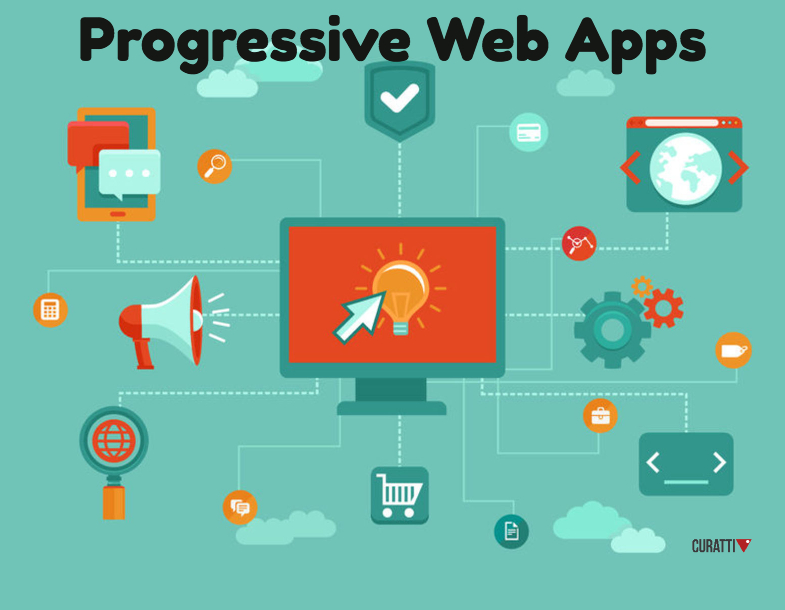Progressive Web Apps are defined as web applications that have been designed to be reliable and easy to install, no matter which mobile device. They are usually built with modern APIs to allow for enhanced capabilities and installability. PWA Apps are supported by almost all browsers, such as Google Chrome, Firefox, Apple Safari, Microsoft Edge, just to name a few. Here are 5 Examples of Brilliant PWA Apps.
Progressive Web Apps or PWAs are at the forefront of the latest web tools that are used to create engaging and pleasurable experiences for the end user online. In fact, some of the world’s most digitally forward companies including social media companies, financial apps, trading apps and others are already taking advantage of this class of software.
Such is the occurrence of PWA apps in our lives that there is a dedicated app for almost all major services available today. This article looks at five of the best PWA Apps available globally.
- Uber: The cab hailing company Uber has been making waves ever since its inception and has been at the forefront of technological disruption. The PWA app from the company, dubbed m.uber, allows any user to use the service without having to download and install the traditional Uber mobile app. The size is absolutely tiny, with the core components taking up about 50kb, allowing it to load quickly even when using the slowest of connections. This in turn has been advantageous for the app’s Google rankings as the search engine’s algorithm prefers fast loading websites.
- Financial Times: The Financial times is a maverick when it comes to delivering financial and economic news to one’s doorsteps, and even they have started tapping into progressive web apps. It improves the customer experience by a large degree, allowing customers to read in an offline state. Aesthetically, they have preserved the traditional colour scheme of the paper as well, making it instantly recognisable.
- IQ Option: IQ Option is one of the best progressive trading platforms available globally and they have a PWA app as well. Originally starting of as a mere binary options broker, IQ Option has since grown to offer CFDs on cryptocurrencies, Forex, Stocks, ETFs, as well as binary option contracts. It also comes with a share of 15 important technical indicators for users to easily spot profitable trades, such as the MA, Bollinger Bands, RSI, MACD and others.
The PWA App behaves the same way as their official native mobile app but does not require any downloading. PWAs can be instead installed just by clicking on the “Add to home screen button”. The PWA App offered by IQ Option does not come under any restrictions or limitations that normally apply under Play Store and App store rules. This means that users can access all the instruments for trading including binary options, which is a popular trading product. This is of course subject to ESMA restrictions which do not allow traders under the European Union to access binary options. Non EU traders may still trade binary options through the PWA App.
- Forbes: Forbes is a major global media company that has experienced the benefit of progressive Web Apps first-hand. The PWA allows Forbes to load quickly on the user’s device. This is an amazing improvement from their traditional mobile browser, which was sluggish and took 3 to 12 seconds to load on n average, can easily be replaced by the PWA app which takes only 0.8 seconds. This has allowed Forbes to achieve a 43% increase in sessions as well as a 100% increase in engagement.
- Pinterest: Pinterest has been a giant in the global image sharing and social media service arena for years now, having over 400 million monthly active users as of August 2020. Pinterest’s normal UI and design is more geared towards taking advantage of a PWA App. Because of the image-heavy aspect of the service, their traditional mobile app was clunky and slow.
This was one of the reasons why many steered clear from downloading their app. With the PWA app on the other hand, faster loading times are provided. Users can simply add the shortcut to their home page without any downloads required. Since the introduction of their PWA App, Pinterest has seen a 44% and 40% increase in user generated ad revenue and time spent on mobile site, respectively.
Conclusion
The above are just some examples of big brands using PWA Apps for increased penetration among their user bases. The benefits of this type of app are numerous: better loading times, an app-like experiences, no downloads required as well as low data usage. This directly has a positive effect on any brand’s conversion rates, engagement rates, and mobile revenue. These are the cornerstones of achieving success in today’s competitive business environment.





